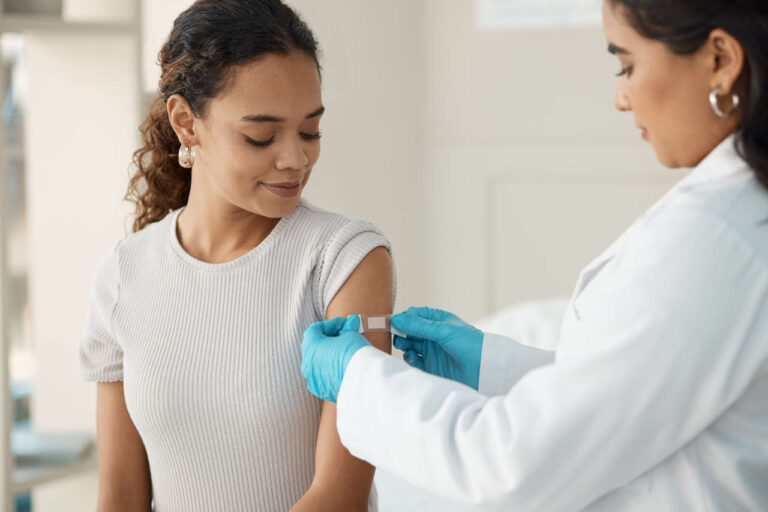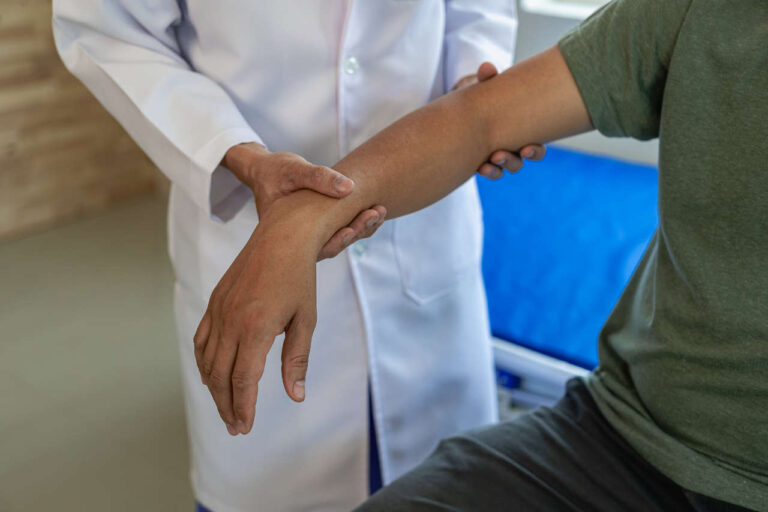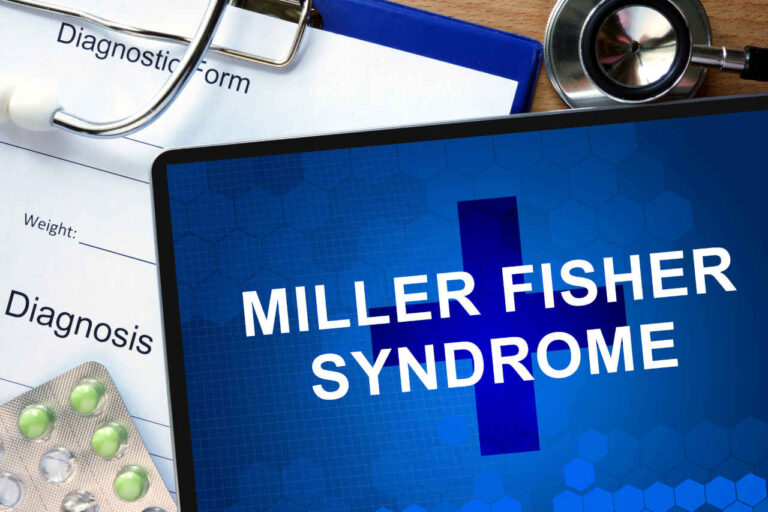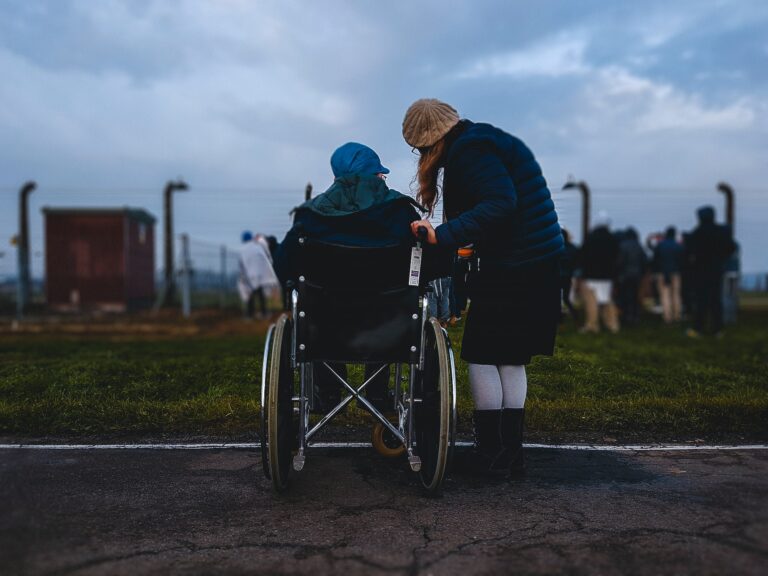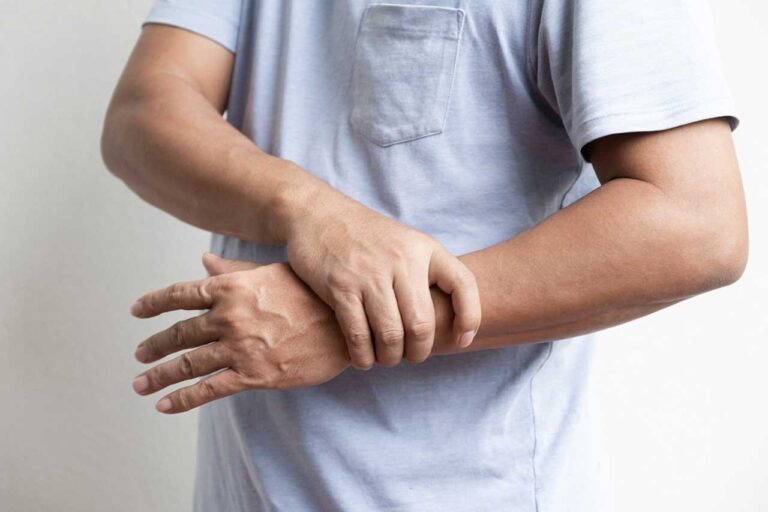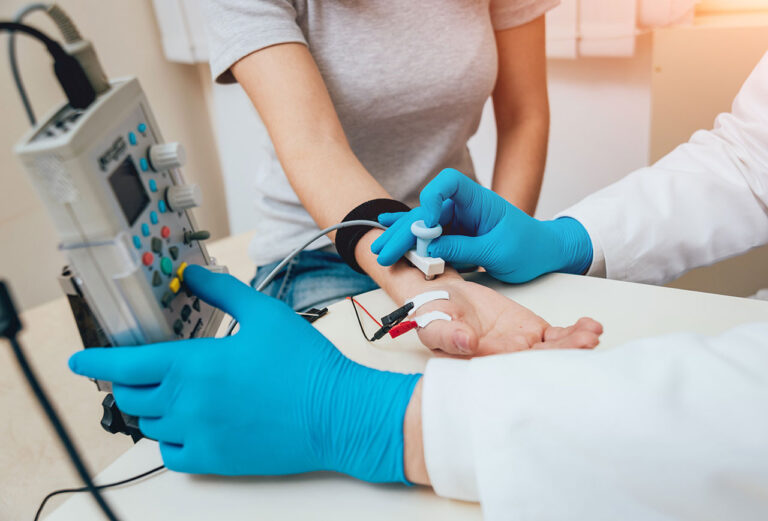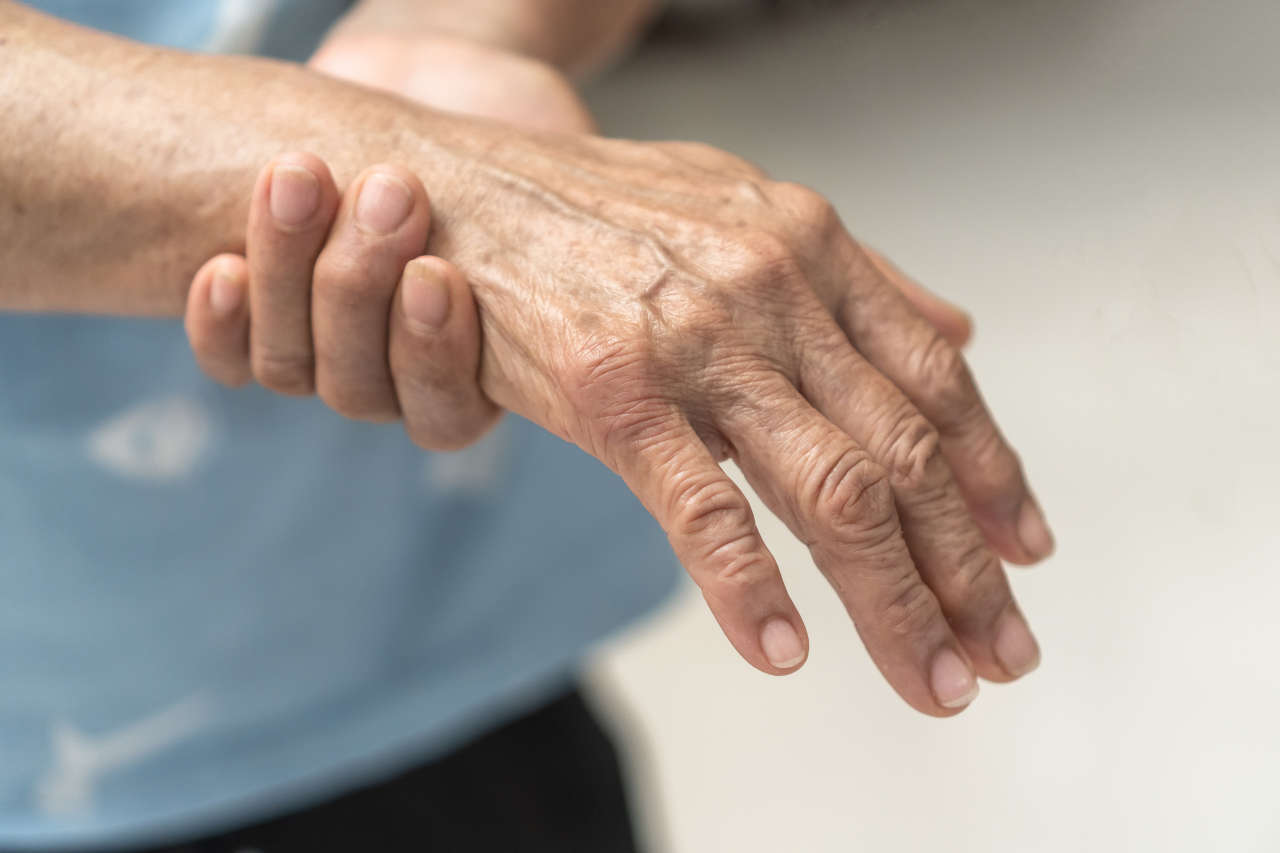
According to the Centers for Disease Control and Prevention (CDC), having shingles may put you at a slightly higher risk of Guillain-Barre Syndrome (GBS), and so can Shingrix, which is a highly effective vaccine for shingles.
Speak to a Specialist
About Copay AssistanceBut should you worry? Let’s look at what the latest evidence says.
Several viruses have been implicated as triggers for GBS, among other risk factors. These include cytomegalovirus (CMV), Epstein-Barr virus (EBV), Zika virus, and influenza virus.
But limited information is available about the risk of GBS following shingles. This is likely because only a handful of people with shingles get GBS.
In this article, we will discuss the link between shingles and GBS, how shingles may trigger GBS, and if you should be concerned about the safety of shingles vaccines.
A Quick Overview of Shingles and Guillain-Barre Syndrome
Shingles is a viral infection characterized by a painful rash, especially around the left or right side of the torso. The virus that causes chickenpox — the varicella-zoster virus — also causes shingles.
Once you’ve had chickenpox, the virus stays dormant (inactive) in your system for the rest of your life. You get shingles when the virus reactivates.
GBS is a rare immune-mediated neurological condition. It causes muscle weakness and tingling sensations in the hands and feet. In severe cases, it can result in paralysis or respiratory failure.
Shingles and Guillain-Barre Syndrome: Is There a Link?
While a few reports have found a connection between shingles infection and Guillain-Barre Syndrome, a causal relationship is lacking. In simple terms, we have yet to know if a shingles infection causes GBS.
The authors of a 2021 case report described a case of GBS caused by varicella zoster virus reactivation (shingles) in a 68-year-old man with a history of multiple myeloma [1].
The person received:
- IVIG for suspected GBS
- Daratumumab for multiple myeloma (a rare cancer)
- Acyclovir for shingles
According to the authors, the person’s symptoms improved with continued IVIG and acyclovir.
In 2001, a correspondence published in the “New England Journal of Medicine” (NEJM) reported a case of GBS in a 73-year-old woman [2]. The person received acyclovir and other medications. Unfortunately, the weakness in her legs worsened, confining her to bed.
Her condition improved following plasma exchange, and she started a rehabilitation program.
Early GBS symptoms typically appear 2 days to 8 weeks after rashes erupt. This is the period when you have to be most vigilant.
How May Shingles Trigger GBS?
No one exactly knows how shingles infection may trigger GBS.
However, health experts believe specific molecules on the varicella-zoster virus may mimic those on your nerves. They call this “molecular mimicry.”
This similarity may cause the immune system to mistakenly attack the healthy nerve cells instead of the varicella-zoster virus [3].
As a result, the nerve cells become damaged, leading to GBS or other similar conditions.
Get Financial Assistance
Vaccine for Shingles and Guillain-Barre Syndrome Risk
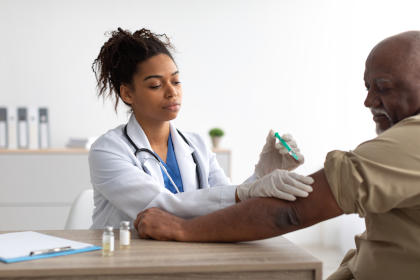
Shingrix is a vaccine FDA-approved for shingles in the US. The CDC recommends two doses of Shingrix for adults 50 years and older. The vaccine is highly effective in preventing shingles and associated complications.
However, many people are concerned that Shingrix may cause GBS. Fortunately, the chances of getting GBS from the shingles vaccine are very low. A 2021 study estimated three cases of GBS per million vaccinations administered in adults [4].
Should any side effects occur, report them to the Vaccine Adverse Event Reporting System (VAERS) or call 1-800-822-7967.
Further Reading: Guillain-Barre Syndrome and Vaccines: What You Need to Know
Can You Get the Shingles Vaccine If You Had GBS?
Talk to your healthcare provider before receiving the shingles vaccine if you have a history of GBS. They will assess your symptoms and discuss the risks and benefits of the vaccine with you.
REFERENCES:
- GENERALOV, DMITRIY, et al. “GUILLAIN-BARRÉ SYNDROME INDUCED by VARICELLA ZOSTER VIRUS REACTIVATION in a PATIENT with MULTIPLE MYELOMA.” Chest, vol. 160, no. 4, Oct. 2021, p. A699, https://doi.org/10.1016/j.chest.2021.07.663. Accessed 1 Aug. 2022.
- Roccatagliata, L et al. “Guillain-Barré syndrome after reactivation of varicella-zoster virus.” The New England journal of medicine vol. 344,1 (2001): 65-6. doi:10.1056/nejm200101043440117
- Cresswell, Fiona et al. “Severe Guillain-Barré syndrome following primary infection with varicella zoster virus in an adult.” International journal of infectious diseases : IJID : official publication of the International Society for Infectious Diseases vol. 14,2 (2010): e161-3. doi:10.1016/j.ijid.2009.03.019
- Goud, Ravi et al. “Risk of Guillain-Barré Syndrome Following Recombinant Zoster Vaccine in Medicare Beneficiaries.” JAMA internal medicine vol. 181,12 (2021): 1623-1630. doi:10.1001/jamainternmed.2021.6227

